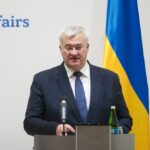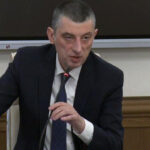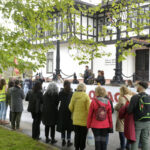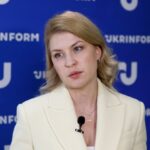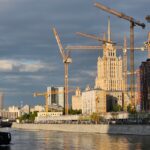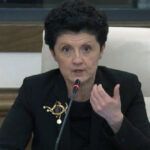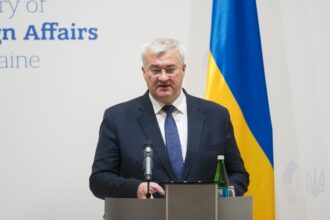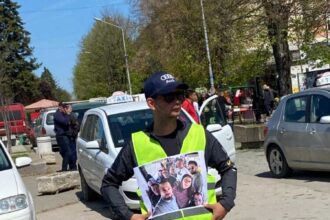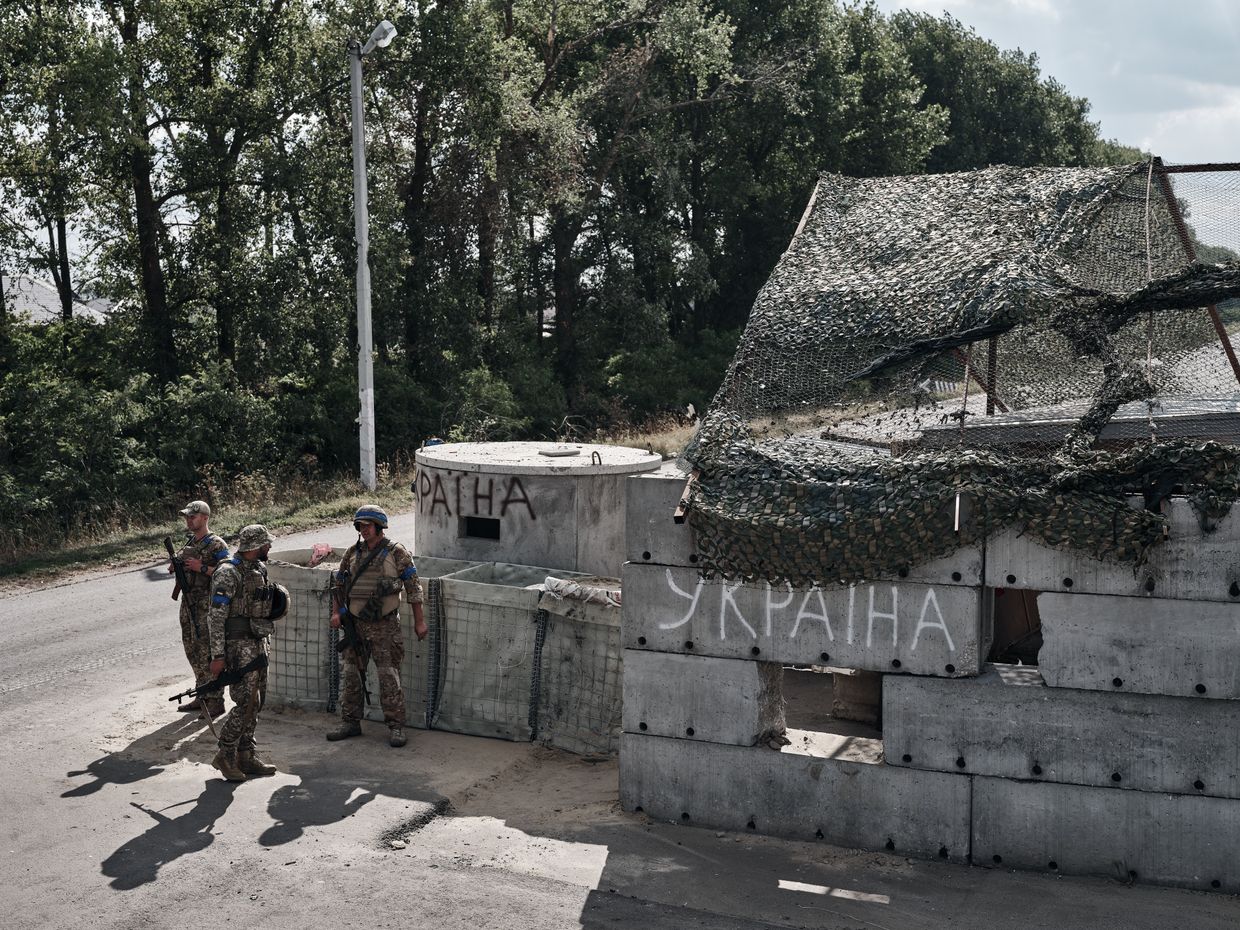Yulia Navarnaya is surrounded by media while she waits to get an Uber in Berlin, Germany on March 17, 2024. She voted at the Russian embassy in the Russian election in Berlin. (Sean Gallup/Getty Images)
When Alexei Navalny, the Russian opposition leader, died in a penal colony in the Arctic in February 2024 the liberal dissidents of the country vowed to continue their mission: to bring an end to the rule by Russian President Vladimir Putin.
Eight months later, however, Russia’s opposition remains bitterly divided with little or no vision on how to continue the promised fight.
Their grievances echo far beyond the negotiation table.
In September, the Navalny-linked Anti-Corruption Foundation accused a fellow dissident, Leonid Nevzlin, of orchestrating a violent hammer assault on its former CEO Leonid Volkov on the streets in Vilnius. Nevzlin has denied the allegations.
The accusations tore apart the already tattered relationships between the FBK, which Nevzlin is a part of, and the opposition circles that Nevzlin belongs to. These circles are led by exiled oligarch Mikhail Khodorkovsky. Khodorkovsky even accused Navalny’s allies “waging a discrediting campaign” against him.
The FBK is also facing allegations.
Maxim Kats, an opposition activist, released a 2-hour video on October 1, accusing the group that it had rehabilitated the reputations of Russian businessmen accused by fraud by accepting their contributions. The FBK has not yet commented on the investigation in depth, saying that it will release a more comprehensive response after its own analyses of Kats’s documents.
Maria Pevchikh, chairwoman of the FBK, complained on X. “Time that could be spent on important matters will have to go into this.”
Both episodes show the problems that Russia’s opposition faces: open suspicions or outright hostility among rival groups and a lack agreement on the key goals of the movement. What will happen to Russia’s exiled opposition when there is no solution in sight and the war machine of Moscow continues to march forward?
A tumultuous history
Russia’s liberals are not new to infighting. Many of the most divisive divisions are generational. Politicians who were active in 1990s, like Mikhail Khodorkovsky or Garry Kasparov find themselves at odds with younger activists, like the leaders of FBK.
There are important differences in political visions and policies. Stephen Hall, assistant Professor in Russian and Post-Soviet politics at the University of Bath, says that Khodorkovsky, and others, want a much slower, gradual change.
The FBK has not provided a detailed plan for the Russia of tomorrow, despite its efforts to sound open to a more radical shift.
Hall says that the FBK has this idea that they will talk about corruption to create mass protests and that these will radically transform Russia. This tactic led to the organization’s exile, with little success in stirring up dissent at home.
In Russian political circles, such differences can quickly become personal. Since the 1990s oppositionists have feared the infiltration of security services. This has created an atmosphere of distrust and suspicion, rather than good will. This is an environment that government agents have sought to intensify.
Pablo Gonzalez, a suspected Russian spy, was returned to Russia in August after a large prisoner exchange. Gonzalez, whose real name is Pavel Rubtsov has successfully infiltrated Russian opposition members, building friendships and romantic relations with them.
No one after Navalny
The Russian democracy is also centered around people rather than institutions, parties, or groups. Disagreements are often viewed as personal attacks, rather than as a political or social discourse.
“Ultimately, this is the result of the weaknesses in the Russian democracy, as there are people who cannot build institutions. Luke March, professor of Soviet and Post-Soviet politics at the University of Edinburgh, says that things become very personal around key figures who are competing for these little shards of sunlight in a very dense forest. “You still have a revolutionary culture of strong leadership with their small organisations.”
Read More @ kyivindependent.com
